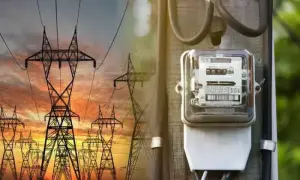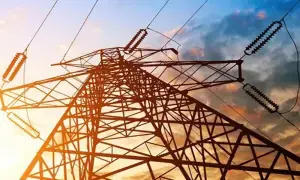Flood-damaged vehicles from UAE become cause of concern for buyers of used cars
3 min readExecutives of Saudi car industry are advising residents in the UAE to exercise caution when purchasing pre-owned vehicles in the coming six to 12 months.
Residents are recommending either buying from approved pre-owned vehicle companies or conducting thorough inspections before making a purchase, Khaleej Times reported.
In the wake of the recent storms that struck the region, causing the heaviest rainfall recorded in the past 75 years, severe road flooding has resulted in thousands of cars being damaged.
The affected cars are likely to be put up for sale in the local market.
The CEO of Cars24 for the Gulf region, Abhinav Gupta has estimated that a significant number of cars have been impacted, although the extent of the damage may vary, the leading Gulf daily said.
He mentioned that areas such as Sharjah and Ajman have been more severely affected compared to certain parts of Dubai.
Gupta noted that many customers have approached them for car servicing or to look for new cars, and this trend has been observed by their partners as well.
Gupta further estimated that approximately 20-25 percent of the submerged cars are expected to have significant issues or damages, depending on the specific circumstances.
Cars that can be repaired will be retained by their owners and will likely re-enter the market within the next six to 12 months.
According to e-commerce platforms specializing in pre-owned vehicles, around 0.5 million pre-owned cars were sold in the UAE last year, with a year-on-year growth rate of 7 to 10 percent.
Submerged vehicles
Gupta said that the vehicles that have been submerged and damaged in the recent storms in the UAE can be categorized into three groups.
The first category includes cars that are completely submerged and deemed beyond repair due to the high cost of damages exceeding their value.
The second category consists of vehicles that are repairable but would require expensive repairs. Lastly, there are cars with minor damages.
Gupta explained that the first two categories pose challenges because insurance companies may write them off, making it difficult for end-users to obtain insurance coverage.
Read more
Saudi Arabia welcomes Iranians for Umrah for first time in 9 years
Owners may choose to either repair these vehicles or sell them off.
These cars are expected to end up at auctions, classified websites, or local dealers located in industrial areas.
These dealers often take the cars to inexpensive workshops for basic repairs and cosmetic fixes.
Gupta cautioned potential buyers in the open market, highlighting the risks associated with purchasing these flood-damaged vehicles.
Their reliability is questionable due to water seepage into engines, damage to the transmission and electrical systems, and potential future issues with airbag functionality, and the repair garages these cars are taken to may not be trustworthy.
Gupta emphasized that buying from unorganized open markets, classified websites, or small dealers carries a high level of risk.
He also mentioned that a portion of the flood-damaged vehicles will likely be exported to African and Middle Eastern countries.
However, the majority of these cars will remain in the local market and some may be sold abroad.
Gupta believed that organized pre-owned car players in the market would benefit from this situation.
Prices of cars
“Definitely, good-quality used cars should see some increase in prices. There is some artificially built-up demand because of the floods, and some used car prices should spike in the next 6-12 months,” he said.
He added that UAE motorists who have lost their vehicles will look for a new one, driving additional demand for cars. And cars which were not damaged in the floods will be fewer than before the Eid Al Fitr period, so there will be lesser supply, resulting in a gap between supply and demand,“ he concluded.
For the latest news, follow us on Twitter @Aaj_Urdu. We are also on Facebook, Instagram and YouTube.



























Comments are closed on this story.